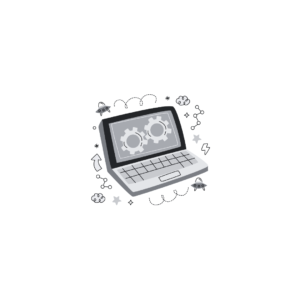Description
A Bachelor of Technology – Lateral Entry (B.Tech-LE) in Electrical and Electronics Engineering is a specialized program designed for students who have completed a diploma in electrical or electronics engineering. This program enables students to enter the second year of the B.Tech course, where they can deepen their understanding of both electrical and electronic systems and technologies.
Curriculum Overview
The curriculum for a B.Tech-LE in Electrical and Electronics Engineering typically encompasses a blend of theoretical knowledge, practical skills, and hands-on training. Here are some common subjects and areas of study in this program:
Engineering Mathematics:
Advanced mathematical techniques relevant to engineering problems, including calculus, linear algebra, and differential equations.
Circuit Theory:
Foundations of electrical circuits, circuit components (resistors, capacitors, inductors), and methods for circuit analysis.
Electromagnetic Fields:
Study of electromagnetic waves, field theory, and applications in electrical engineering.
Electrical Machines:
Overview of electrical machines such as transformers, motors, and generators; their principles of operation and applications.
Signal and Systems:
Concepts pertaining to signal representation, system behavior, and analysis in both time and frequency domains.
Control Systems:
Principles of automatic control, feedback systems, stability, and control strategies.
Digital Electronics:
Fundamentals of digital systems, logic gates, combinational and sequential circuits, and microcontrollers.
Analog Electronics:
Study of analog circuit design, including amplifiers, filters, oscillators, and their applications.
Power Electronics:
Study of electronic devices for converting and controlling electrical power, including converters and inverters.
Embedded Systems:
Introduction to microcontrollers and microprocessors, and designing embedded systems for specific applications.
Communication Systems:
Fundamentals of analog and digital communication techniques, modulation, and data transmission.
Renewable Energy Technologies:
Introduction to renewable energy systems such as solar, wind, and fuel cells, focusing on their design and integration.
Electrical Measurements:
Techniques and instruments used for measuring electrical parameters like voltage, current, resistance, and power.
Capstone Project/Internship:
Practical experience through a project or internship allowing students to apply their knowledge in real-world scenarios.
Career Opportunities
Graduates with a B.Tech-LE in Electrical and Electronics Engineering can pursue a wide range of career opportunities in various industries, including telecommunications, automation, power generation, and consumer electronics. Some potential job roles include:
Electrical Engineer: Designing electrical systems, working on infrastructure projects, and ensuring compliance with safety standards.
Electronics Engineer: Developing and testing electronic circuits and systems for consumer electronics, telecommunications, or medical devices.
Control Systems Engineer: Designing and implementing control systems used in industrial automation and robotics.
Embedded Systems Engineer: Developing and programming embedded systems for various applications, including IoT devices and automotive systems.
Power Systems Engineer: Working with the generation, transmission, and distribution of electrical power and integrating renewable energy sources.
Telecommunications Engineer: Designing communication systems and networks to facilitate data transmission and voice communication.
Test Engineer: Conducting tests on electronic components and systems to ensure they meet quality and performance standards.
Research and Development Engineer: Engaging in innovative projects focused on advancing electrical and electronic technologies.
Field Engineer: Providing technical solutions and support for electrical and electronic systems in the field.
Project Manager: Managing projects related to electrical and electronics engineering, coordinating teams, and ensuring timely delivery.
Further Education
Graduates may choose to pursue a Master’s degree in Electrical and Electronics Engineering or specialized areas such as Control Systems, Power Electronics, or Communications for further career advancement. Pursuing professional certifications can also enhance job prospects and skill development.
If you have any further questions about the curriculum, potential career paths, or any other aspects of a Bachelor of Technology – Lateral Entry in Electrical and Electronics Engineering, feel free to ask!









